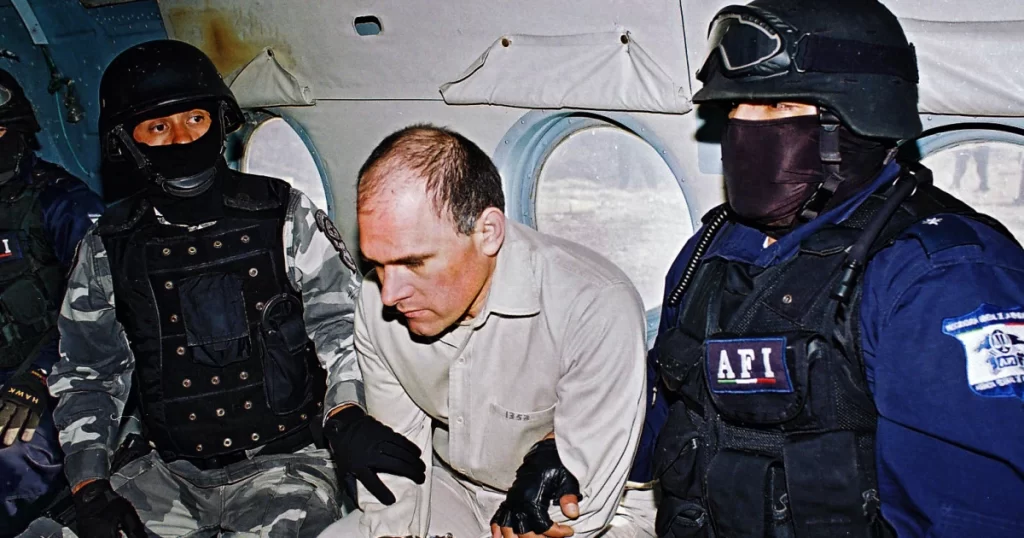Osiel Cardenas, one of Mexico’s most infamous drug lords and founder of the notoriously violent Zetas cartel, was released from a U.S. federal prison on Friday into the custody of Immigration and Customs Enforcement (ICE). This development marks a significant moment in the ongoing saga of Mexico’s drug war and U.S.-Mexico relations in combating organized crime.

Cardenas, the former leader of the Gulf Cartel, was a pivotal figure in Mexico’s drug trafficking landscape, known for introducing hyper-violent tactics that reshaped the nature of cartel operations. His release after serving a 25-year sentence, which began with his extradition to the United States in 2007, has raised questions about his future and the potential impact on Mexico’s ongoing struggle with drug-related violence.
A spokesperson for the U.S. Bureau of Prisons confirmed Cardenas’s release to Reuters, stating he was transferred “into the custody of U.S. Immigration and Customs Enforcement (ICE)” earlier on Friday. The exact details of Cardenas’s current status and potential deportation remain unclear.
An ICE spokesperson provided limited information, confirming that Enforcement and Removal Operations officers took custody of Cardenas at the federal prison in Terre Haute, Indiana. The spokesperson added that Cardenas “remains in ICE custody pending a final disposition determination.”

The possibility of Cardenas’s return to Mexico has sparked concern and speculation. An anonymous U.S. official, cited by NBC News, suggested that the Biden administration plans to hand over Cardenas to Mexican authorities on Monday. Adding to the complexity, a Mexican government source revealed that Cardenas faces outstanding charges in Mexico and is currently being held in a U.S. migration detention center.
Cardenas’s impact on Mexico’s drug war cannot be overstated. Leo Silva, a former U.S. Drug Enforcement Administration agent who worked to counter the Zetas in Mexico, squarely blamed Cardenas for the dramatic escalation in brutal violence that has plagued Mexico over the past two decades.
“This was something that Osiel created that generated a new era of organized crime,” Silva, who served with the DEA in Mexico from 2008 to 2015, told reporters. “He unleashed this mentality of creating fear in the country.”
Under Cardenas’s leadership, the Zetas, originally formed as an armed wing of the Gulf Cartel, introduced unprecedented levels of brutality to cartel operations. They expanded beyond drug trafficking to engage in widespread extortion and kidnapping, sowing terror throughout their areas of influence. The group’s tactics included decapitations and other shocking acts of violence aimed at intimidating rivals and the general public alike.

The Zetas later broke away from the Gulf Cartel and, for a time, became Mexico’s most feared criminal organization before largely disintegrating. However, the legacy of their brutal methods continues to influence cartel violence in Mexico to this day.
Cardenas’s potential return to Mexico raises significant concerns about security and the ongoing fight against drug cartels. Mexican authorities will face the challenge of managing his reintegration, if deported, while addressing the outstanding charges against him and mitigating any potential disruption to the current criminal landscape.
As both U.S. and Mexican officials deliberate on Cardenas’s fate, the international community watches closely. The handling of this high-profile case could have far-reaching implications for U.S.-Mexico cooperation in combating drug trafficking and for the future of cartel operations in the region.
The coming days are likely to bring more clarity on Cardenas’s immediate future, as well as insights into how both countries plan to address the ongoing challenges posed by transnational organized crime in the wake of this significant development.



